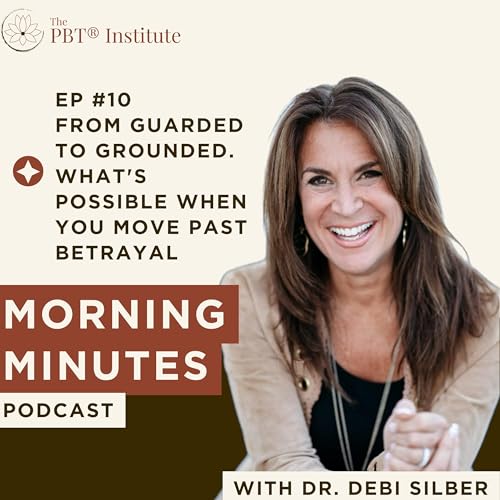High achievers, executives, and seasoned professionals are often shocked that betrayal takes them down in ways other challenges never have. Discover why you can't logic your way through betrayal trauma, what makes betrayal fundamentally different from other challenges, and the holistic healing approach that actually works when traditional problem-solving fails. Why Intelligence Can't Solve Betrayal You're using the wrong tool for the job Brilliant, accomplished professionals struggle with betrayal recovery not because they lack intelligence, but because betrayal isn't a problem you can think your way out of. It's not a puzzle your mind can solve with enough analysis. Your intelligence has been your superpower It's gotten you through impossible deadlines, complex negotiations, career challenges, and financial setbacks. Strategic thinking and problem-solving have been your greatest assets. But betrayal doesn't care how smart you are And that's not a weakness—that's just the nature of what you're dealing with. What Makes Betrayal Trauma Different Betrayal hits you on every level simultaneously: Physical Mental Emotional Psychological Spiritual The issues are in your tissues Your cognitive mind, as powerful as it is, cannot address what's happening in your nervous system. It can't logic away what's stored in your gut or analyze away what's encoded in your heart. You can be at the top of your field and still find yourself completely stuck when it comes to healing from betrayal. That's not a reflection of your intelligence—it's a reflection of betrayal being a fundamentally different type of trauma that requires a fundamentally different approach to heal. The Stage 3 Trap: When Therapy Keeps You Stuck A critical warning for high achievers in traditional talk therapy: If you're feeling heard and validated but nothing is really changing—if you're still stuck in the same patterns, carrying the same pain, unable to move forward—you may be unintentionally solidifying your position in Stage 3 of the Five Stages from Betrayal to Breakthrough. What happens in Stage 3: You understand what happened You can talk about it articulately You've processed it cognitively But you're not healing at the deeper levels where betrayal actually lives The Stage 3 comfort trap: The longer you stay here, the harder it feels to leave. You become comfortable with the pain, familiar with the story. Your identity starts to reorganize around what happened to you. The problem with traditional talk therapy: While well-meaning and unintentional, traditional therapy can sometimes keep you circling in Stage 3 when what you really need is to move through to Stages 4 and 5, where complete healing and transformation happen. The Real Solution: Holistic Betrayal Healing Bypass the logical mind Betrayal operates below the cognitive level. It lives in your nervous system, in your body, in the implicit memories that fire before you even have a conscious thought. What actually works for high achievers healing from betrayal: Somatic healing practices that release trauma stored in your body Nervous system regulation that teaches your system it's safe again Energy work that addresses the spiritual wound of broken trust Whole-system approaches that work with your entire being, not just your thinking brain This isn't about being less intelligent It's about being smart enough to recognize when your usual strategies won't work and being willing to try something different. Key Insights You deserve more than validation You deserve more than just feeling heard and understood. You deserve Stage 5: complete healing and transformation—the version of you that's healthy, whole, healed, and confident. The worst already happened The betrayal occurred. You survived it. Now you owe it to yourself, to everything you've built, to everyone you serve, to become that transformed version waiting for you in Stages 4 and 5. Stop thinking, start healing Your intelligence got you far in life—it built your career, created your success, solved a thousand problems. Honor that. And also recognize that your willingness to heal differently, to use different tools, to address betrayal at the level where it actually lives—that's what will get you through this. What You Need to Hear If you're the high achiever frustrated by not being able to "figure out" your healing: This isn't your fault. You haven't failed. You just haven't had the right approach yet. Being smart has nothing to do with it You're brilliant and it happened to you anyway. The betrayal didn't check your credentials or ask about your IQ. It just happened. The good news: You can heal from this completely. Not just cope with it. Not just manage it. Not ...
続きを読む
一部表示
 2025/11/126 分
2025/11/126 分 2025/11/108 分
2025/11/108 分 9 分
9 分 8 分
8 分 9 分
9 分 6 分
6 分 8 分
8 分 2025/10/278 分
2025/10/278 分
